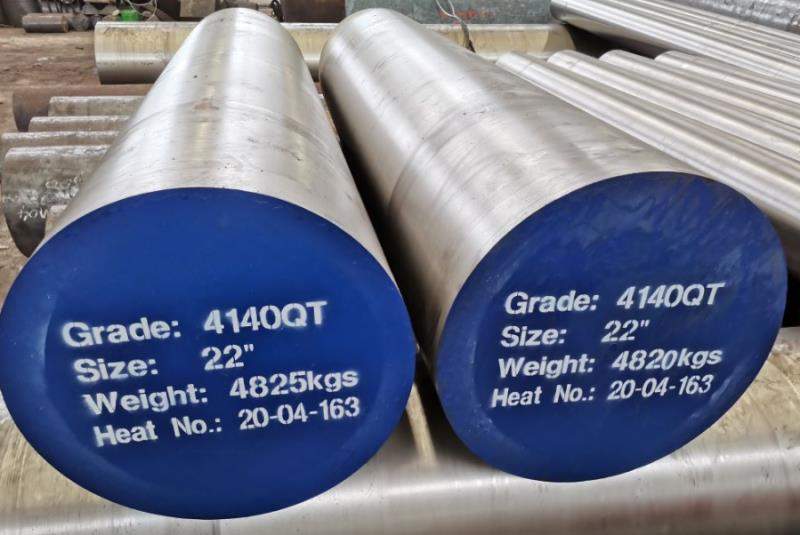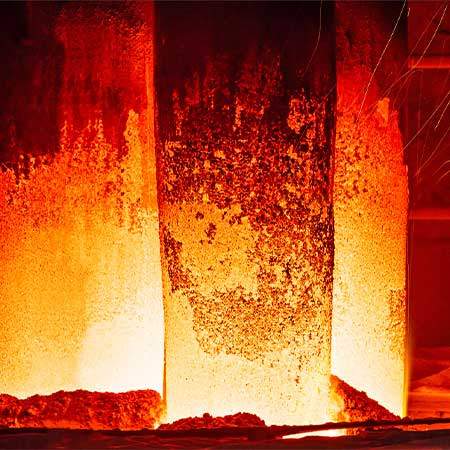Welcome to My Blog!
Before we dive into the content, I’d love for you to join me on my social media platforms where I share more insights, engage with the community, and post updates. Here’s how you can connect with me:
Facebook:https://www.facebook.com/profile.php?id=100085401406977
LinkedIn:https://www.linkedin.com/showcase/102680001/admin/dashboard/
Now, let’s get started on our journey together. I hope you find the content here insightful, engaging, and valuable.
Introduction
When it comes to selecting the right material for engineering, manufacturing, or construction projects, alloy steel 4140 stands out as a versatile and reliable choice. Known for its excellent strength, toughness, and resistance to wear and fatigue, alloy steel 4140 is widely used across various industries. Whether you’re working on automotive parts, machinery, or structural components, understanding the properties and benefits of alloy steel 4140 can help you make an informed decision for your project. In this blog, we will explore why alloy steel 4140 is a preferred material, its key characteristics, and how it compares to other steel grades.
What is Alloy Steel 4140?

Composition of Alloy Steel 4140
Alloy steel 4140 is a chromium-molybdenum alloy steel that contains a specific blend of elements designed to enhance its mechanical properties. The chemical composition of alloy steel 4140 typically includes:
- Carbon (C): 0.38% to 0.43%
- Manganese (Mn): 0.75% to 1.00%
- Phosphorus (P): 0.035% max
- Sulfur (S): 0.040% max
- Silicon (Si): 0.15% to 0.35%
- Chromium (Cr): 0.80% to 1.10%
- Molybdenum (Mo): 0.15% to 0.25%
These elements work together to provide alloy steel 4140 with its unique combination of strength, hardness, and toughness. The presence of chromium and molybdenum significantly enhances its resistance to wear and corrosion, making it suitable for high-stress applications.
Mechanical Properties of Alloy Steel 4140
Alloy steel 4140 is renowned for its impressive mechanical properties, which include:
- Tensile Strength: Approximately 655 MPa (95,000 psi) when annealed
- Yield Strength: Approximately 415 MPa (60,000 psi) when annealed
- Hardness: Typically ranges between 197 and 237 HB (Brinell Hardness) in its annealed state
- Elongation: Approximately 20% in 50mm (2 inches)
- Impact Resistance: Excellent toughness and resistance to shock loads
These properties make alloy steel 4140 a strong and durable material that can withstand heavy loads and extreme conditions without compromising its structural integrity.
Key Advantages of Using Alloy Steel 4140
Superior Strength and Durability
One of the primary reasons to choose alloy steel 4140 for your project is its superior strength and durability. The combination of chromium and molybdenum in its composition gives it high tensile and yield strength, making it ideal for components that must endure high stress and wear. This strength ensures that parts made from alloy steel 4140 maintain their shape and performance even under extreme pressure.
Applications Benefiting from Strength:
- Automotive Components: Alloy steel 4140 is commonly used in crankshafts, gears, and other high-stress automotive parts.
- Heavy Machinery: Its strength and durability make it suitable for shafts, bolts, and other critical components in heavy machinery.
- Structural Applications: It is often used in construction projects where high load-bearing capacity is essential.
Excellent Machinability and Workability
Despite its high strength, 4140 alloy steel is known for its excellent machinability and workability. It can be easily cut, shaped, and welded, allowing manufacturers to create precise components with complex geometries. Additionally, alloy steel 4140 responds well to various heat treatment processes, enabling further customization of its properties to meet specific project requirements.
Workability Highlights:
- Ease of Machining: Alloy steel 4140 can be machined using standard methods, making it a cost-effective choice for producing intricate parts.
- Versatile Heat Treatment: It can be hardened, tempered, and annealed to achieve desired mechanical properties, enhancing its versatility.
- Weldability: With proper techniques, alloy steel 4140 can be welded without compromising its strength or toughness.
Comparison of 4140 Alloy Steel with Other Steel Grades
| Property | Alloy Steel 4140 | Alloy Steel 4130 | Carbon Steel 1045 |
|---|---|---|---|
| Tensile Strength | 655 MPa | 560 MPa | 570 MPa |
| Yield Strength | 415 MPa | 360 MPa | 310 MPa |
| Hardness (Annealed) | 197-237 HB | 160-190 HB | 170-210 HB |
| Chromium Content | 0.80%-1.10% | 0.80%-1.10% | 0% |
| Molybdenum Content | 0.15%-0.25% | 0.15%-0.25% | 0% |
| Corrosion Resistance | High | Moderate | Low |
| Common Applications | Automotive, Machinery | Aircraft, Automotive | General Engineering |
Heat Treatment Processes for 4140 Alloy Steel

Annealing
Annealing is a heat treatment process that softens 4140 alloy steel, making it easier to machine. The steel is heated to a temperature between 830°C and 880°C (1526°F to 1616°F) and then slowly cooled in the furnace. This process refines the grain structure of the steel, improving its machinability and toughness.
Quenching and Tempering
Quenching and tempering are commonly used to increase the hardness and strength of 4140 alloy steel. The steel is first heated to a high temperature (around 845°C or 1553°F) and then rapidly cooled in water or oil (quenching). After quenching, the steel is reheated to a lower temperature (tempering) to reduce brittleness and achieve a balanced combination of hardness and toughness.
Normalizing
Normalizing is a process that involves heating 4140 alloy steel to a temperature above its critical range (around 870°C or 1598°F) and then cooling it in air. This process refines the grain structure and enhances the mechanical properties of the steel, making it more uniform and stable.
Conclusion
Alloy steel 4140 is an exceptional material that offers a unique combination of strength, toughness, and versatility. Its excellent machinability, coupled with its ability to withstand high stress and wear, makes it a top choice for a wide range of applications, from automotive components to heavy machinery and structural projects. By understanding the properties and benefits of 4140 alloy steel, you can make an informed decision that will ensure the success and longevity of your project.
FAQ
What makes alloy steel 4140 different from other steel grades?
Alloy steel 4140 differs from other steel grades due to its higher chromium and molybdenum content, which enhances its strength, toughness, and resistance to wear and corrosion.
Can 4140 alloy steel be heat treated to improve its properties?
Yes, 4140 alloy steel can be heat treated through processes such as annealing, quenching, tempering, and normalizing to achieve desired mechanical properties like increased hardness and strength.
What are the common applications of 4140 alloy steel?
Alloy steel 4140 is commonly used in automotive components, heavy machinery, structural applications, and other high-stress environments where strength and durability are essential.
Is alloy 4140 steel easy to machine and work with?
Yes, alloy steel 4140 is known for its excellent machinability and workability. It can be easily cut, shaped, and welded, making it suitable for manufacturing complex components.
How does the chemical composition of 4140 alloy steel contribute to its properties?
The chemical composition of alloy steel 4140, particularly the presence of chromium and molybdenum, enhances its mechanical properties, including tensile strength, hardness, and resistance to wear and corrosion.
